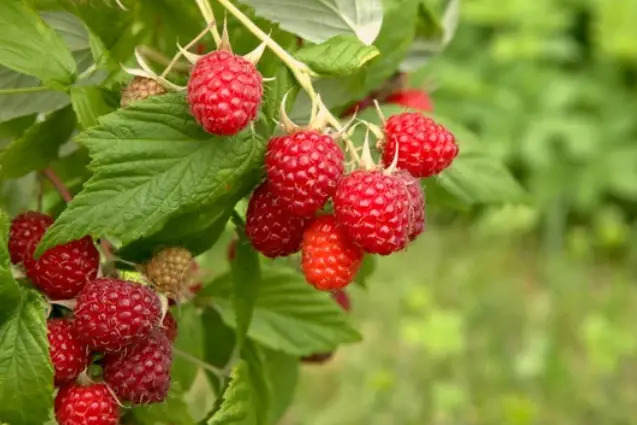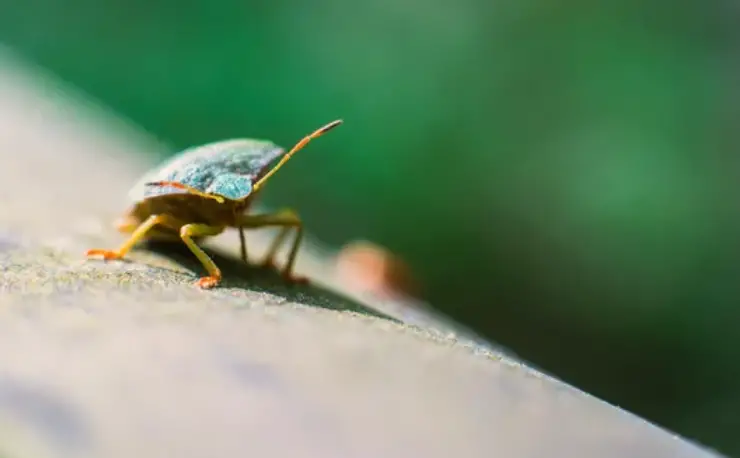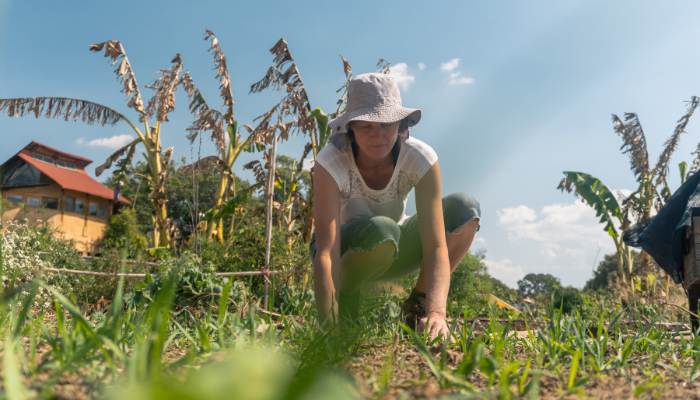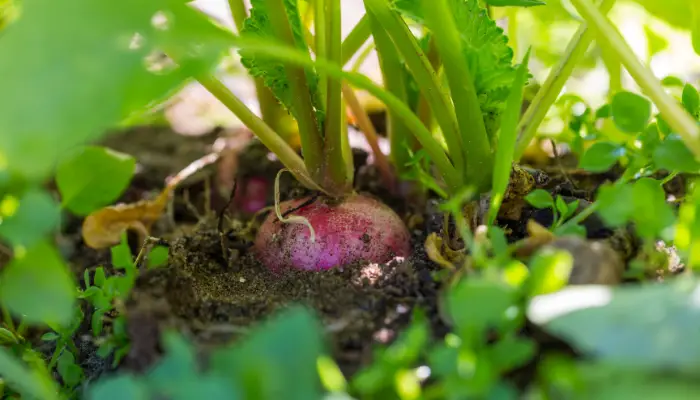What Grows Well With Raspberries?
In the world of home gardening, raspberries are a favorite due to their rich flavor and vivid color.
These delicious berries are a great source of important nutrients in addition to being a culinary delight.
If you’re new to gardening or an experienced gardener, you might be wondering what goes well with raspberries.
Maximize your raspberry harvest as we delve into the art of companion planting for raspberries in this article.
The Advantages of Planting with Friends
As a gardening technique, companion planting involves placing various plant species close to one another to promote plant growth and provide protection against pests and diseases.
Companion planting has various benefits when it comes to raspberries:
Pest Control
Some companion plants can deter common raspberry pests, such as aphids and Japanese beetles, by either repelling them or attracting their natural predators.
Disease Prevention
Certain companion plants release substances into the soil that inhibit the growth of diseases harmful to raspberries, reducing the need for chemical treatments.
Enhanced Growth
Selecting the right companions can improve soil quality, increase nutrient availability, and provide shade or support for your raspberry plants.
15 Plants That Grows Well With Raspberries
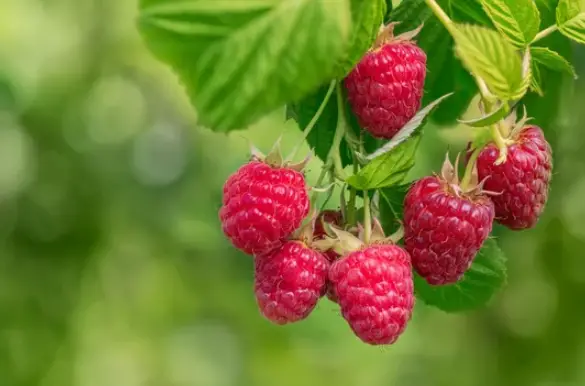
1. Chives
Chives are fantastic companions for raspberries due to their ability to repel aphids. These small, onion-like herbs release a scent that keeps aphids away, protecting your raspberries from potential infestations. Planting chives around the perimeter of your raspberry patch can act as a natural deterrent, promoting a healthier raspberry crop.
2. Marigolds
Marigolds are not only known for their vibrant blooms but also their effectiveness at repelling nematodes, which can damage raspberry roots. Their strong scent confuses and deters these underground pests, making marigolds a perfect choice for bordering your raspberry patch.
3. Tansy
Tansy is a powerful repellent for a wide range of insects, making it a great companion plant for raspberries. Its aromatic leaves and bright yellow flowers deter harmful pests like ants, aphids, and Japanese beetles. Placing tansy near your raspberry plants can help protect them from these nuisances.
4. Nasturtiums
Nasturtiums are not only visually appealing but also serve as a natural pest control agent. They attract aphids and other pests away from your raspberry plants. By acting as a sacrificial plant, nasturtiums help to keep your raspberry patch pest-free.
5. Comfrey
Comfrey, a perennial herb, is an exceptional companion plant for raspberries. It has deep roots that mine essential nutrients from the soil and make them available to nearby plants. This dynamic accumulator improves soil quality and provides valuable nutrients to support raspberry growth.
6. Borage
Borage is a versatile companion plant known for its ability to enhance the flavor of raspberries. Its cucumber-like flavor complements the taste of raspberries and can be used in both culinary and medicinal applications. Borage also attracts pollinators like bees, which aid in raspberry pollination.
7. Strawberries
Raspberries and strawberries make excellent neighbors. Their similar growth habits allow them to coexist harmoniously. Planting strawberries near raspberries can also provide ground cover, preventing weed growth and conserving soil moisture. This combination results in a berry bonanza during the harvest season.
8. Garlic
Garlic, known for its culinary and medicinal uses, can also serve as a pest deterrent in the raspberry patch. Its pungent aroma repels common raspberry pests like aphids and Japanese beetles. You can plant garlic around your raspberries or intermingle them within the same bed.
9. Lavender
Lavender not only adds a touch of beauty and fragrance to your garden but also helps protect your raspberries. Its aromatic oils repel many pests, including moths and flies. Lavender can be planted along the edges of your raspberry patch to act as a barrier against these unwanted visitors.
10. Horseradish
Horseradish is an exceptional companion plant for raspberries due to its ability to deter raspberry cane borers. These destructive insects lay their eggs on raspberry canes, leading to extensive damage. Planting horseradish nearby can help keep these pests at bay.
11. Dill
eneficial insects like ladybugs and lacewings, which are natural predators of aphids. By including dill in your raspberry garden, you can encourage these helpful insects to take up residence and protect your berries.
12. Rue
Rue, with its strong scent, can discourage a variety of pests that commonly afflict raspberries. It also provides a striking visual contrast with its bluish-green foliage. Be cautious with rue, as its oils can irritate the skin, so plant it away from high-traffic areas.
13. Bee Balm
Bee balm, as the name suggests, is a magnet for pollinators, particularly bees and butterflies. By attracting these beneficial insects, bee balm can enhance the pollination of your raspberry plants, resulting in more abundant fruit production.
14. Mint
Mint is a versatile herb that can serve as a ground cover around your raspberry patch. Its spreading growth habit helps to suppress weeds and conserve soil moisture, while its strong scent repels pests like aphids.
15. Sunflowers
Sunflowers can provide essential shade to your raspberry plants during hot summer days. Raspberries can be sensitive to extreme heat, and the dappled shade from sunflowers can help prevent stress and sunburn.
Remember: Not All Plants Get Along
Though there are many advantages to companion planting, it’s important to keep in mind that not all plants grow well with raspberries.
Certain plants have the ability to create unfavorable growing conditions or compete for resources.
For instance, even though they are closely related, blackberries and raspberries shouldn’t be planted next to each other because they can spread diseases.
In conclusion, companion planting is a useful method to improve your raspberry garden’s health and growth.
You can support better soil quality, disease prevention, and pest control by carefully choosing the appropriate companion plants.
You can experiment to find the combinations of companion plants that thrive in your particular growing conditions; the list of companion plants provided here is by no means exhaustive.

